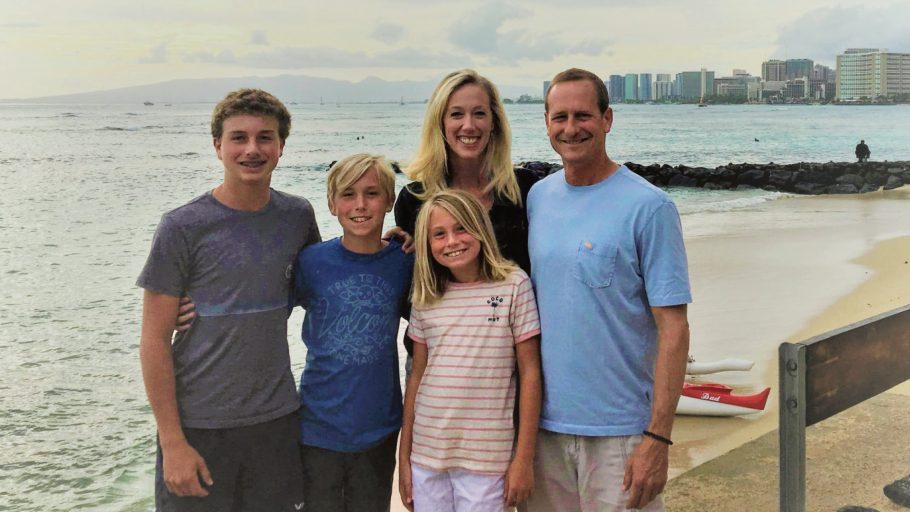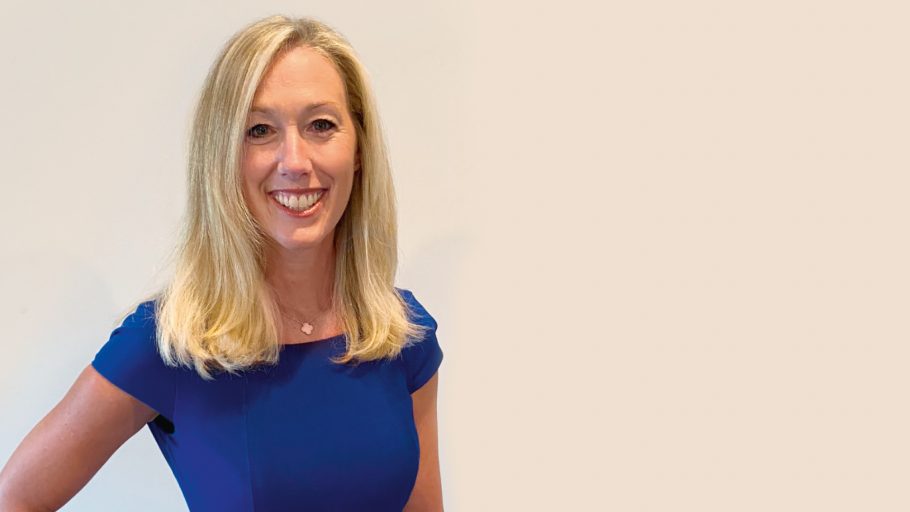You have held diverse roles in your career, spanning functions like marketing, business operations and sales. Tell us about your journey and the most rewarding parts.
I started my career at Oracle in their contracts department, before transitioning into sales. I continued my journey with added responsibilities in marketing and operations across every aspect of digital infrastructure, including datacenters, optical fiber networks, managed services, hardware and software sales. I have built my career on solving business problems for customers and seeing them succeed with our support. I have always worked with companies in a supporting role in the digital world: whether it means providing the high-density power to backup rendering for a new animation film or providing high-performance computing for higher education research in their quest to solve world hunger or reducing the latency between an application and its end-user to increase performance and give the application and its owner a cutting edge advantage. These are the areas that motivate me to find more ways to make a difference.
A highlight of my career at Abovenet was my contribution to the creation of a new exchange platform for media and entertainment companies to digitally transfer content for movie and television production on demand. The service allowed them to exchange content more securely and faster compared to their traditional methods, while only bearing the costs for the bandwidth used. The software platform, while ahead of its time, funded the installation of optical fiber in every major studio and post-production company in Los Angeles, New York, and London. Fast forward a few years later to the creation of cloud services, CoreSite was the first in the datacenter industry to develop a similar exchange platform that connects companies looking to exchange content and workflows with their partners and providers securely and on demand.
At CoreSite I am most proud of my contributions to the development of CoreSite’s strategy and supporting the continuous growth. In the last two years we have added over 100MW of purpose-built datacenter capacity across four of CoreSite’s eight major metropolitan markets in the US. This allows CoreSite to support the increasing demand for new use cases like cloud, AI, data analytics, research, edge compute, rendering, 5G and other innovative technologies.

Having been in the datacenter and connectivity industry for over two decades, since your MFN days, followed by AboveNet, i/o and CoreSite, how have you seen customers’ outsourcing requirements evolve as they are evaluating a third-party datacenter operator for their data-hosting needs?
Enterprises are definitely getting more intentional about their digital strategy and becoming more prudent about it than ever before. Interconnection has become an even more important influencer for deployment decisions — especially within the enterprise segment. With latency sensitive applications and the exponential growth of data, edge computing and access to cloud technologies are critical factors for the enterprise. The enterprise IT decision makers today proffer more knowledge to us about how to utilize colocation within a holistic IT strategy.
How will the pandemic impact the digital infrastructure in the long run?
The pandemic has put the spotlight on digital infrastructure, which has traditionally played a behind-the-scenes supporting role. The focus has propelled acute awareness of the technologies and infrastructure that support the way we manage our business and related capabilities including remote working. We will continue to uncover new technologies to sustain these critical changes, and digital infrastructure will be at the core of our new normal. The pandemic will force enterprises to pivot from on-premise datacenters to cloud and colocation facilities in order to transform their datacenter into a hub for interoperating their workloads. In addition, datacenter managers have realized that colocation providers can do a better job of maintaining a mission-critical space, especially during unprecedented circumstances.
You were recently appointed as the chair of iMasons Marketing and Awareness Committee. What is this committee’s core mission?
It is a great honor to chair the iMasons Marketing and Awareness committee. As a member, I have met so many incredible people from around the world looking to collaborate and give back to our industry. My goal is to spearhead new ways to bring people together and build upon the global community of iMasons. As individuals, we have abundant ideas, experience and knowledge to contribute. As an organization, we can use our collective voice and action to build awareness about the digital infrastructure industry, seek the changes needed, champion diversity and inclusion, and build educational and training programs for students to attract younger professionals to the industry.
As a successful woman leader in various organizations, what were some of the challenges you faced in your journey, and how did you overcome those?
For me, the aspiration extends beyond achieving success—the endeavor is to ensure those I support also achieve success. I constantly reflect on the needs of everyone in my organization so that they meet their goals too. It was important for me to be a personable leader–someone every individual can come to for advice and guidance. Challenging gender-based stereotypes have been an issue for women for years. I, too, have faced this challenge several times over my career, but I also know that women can be successful as long as we have a great supporting team around us. It ultimately boils down to building practices around flexibility and creating a culture that encourages everyone to openly share their needs and challenges. Leaders set the example, and I am proud to be at CoreSite paving the way for other women to lead.
What concrete and constructive changes can we make collectively to improve circumstances for young women to become leaders in the political and corporate spheres?
Gender inequality is present in most industries, be it sports, entertainment, politics or the corporate world. Our industry is no different. However, there are more women in technology sales today than ever before, and more opportunities for women to advance their careers. As a culture, it should start with our girls, by speaking to them with less of a focus on appearance and more on their potential and achievements. Marketing STEM learning and programs to girls just as well as we do to boys is imperative. At the college level and above, we need to acquaint younger women with the varied prospects available to them, actively recruit women and increase formal training programs for women’s leadership skills. As women in leadership roles, we need to relay our brand, and make sure we create environments that are welcoming and accepting for all, with equal opportunities, career mapping, self-care benefits and family support benefits.
Hiring candidates from a diverse candidate pool remains the cornerstone of CoreSite’s practices. I couldn’t be more proud to see so many women stepping into these leadership roles and becoming role models for others. In 2016, the company formalized its long-standing commitment to Fair and Equal Treatment by installing it as one of CoreSite’s 8 Guiding Principles. In fact, people of varied backgrounds and experiences (including 45% from under-represented groups) make up Core Site’s workforce. Our CEO [Paul Szurek] has led the effort for several years, without favoritism or discrimination of any kind, to create more gender and minority representation at the senior leadership level of the company, almost entirely due to internal promotion.
A significant action we can collectively perpetuate—something I’m working on through the iMasons platform—is giving younger men and women a track to find a promising yet exciting career path. Each one of us can offer to be a mentor to women in our companies, schools or colleges, to show them their potential. I landed in this industry by chance, and I would like to make sure more women know it is a great career choice.
What’s your message for young women who may be contemplating whether or not to join this industry?
The datacenter industry has been a very rewarding career choice for me. While there are cyclical components to it with supply and demand, overall the datacenter industry continues to grow at a strong pace and is a critical component to powering technology innovations that we count on more and more in our every day lives. I am excited for the future of technology and how datacenters will continue to be integral to the customer’s digital strategy. I would ask young women to do their research and evaluate all of the potential opportunities available to them in this industry. As you continue to develop your own career path, believe in yourself, promote yourself, find your voice and negotiate hard. Find a female mentor who can help you navigate your career. Then, strive to become an expert in your arena and prove your worth. When the opportunity arises, support other women!
Tell us about your passions and hobbies that helps you maintain a work-life balance.
I love to travel with my family—Hawaii is my favorite destination. I am also a sports enthusiast, and probably my children’s biggest cheerleader. My weekends are usually spent watching my two sons’ volleyball or football games or coaching my daughter’s AYSO (American Youth Soccer Association) soccer team (this will be my eighth season). I believe all the skills you learn from being a team player will be carried forward throughout your professional life too.

